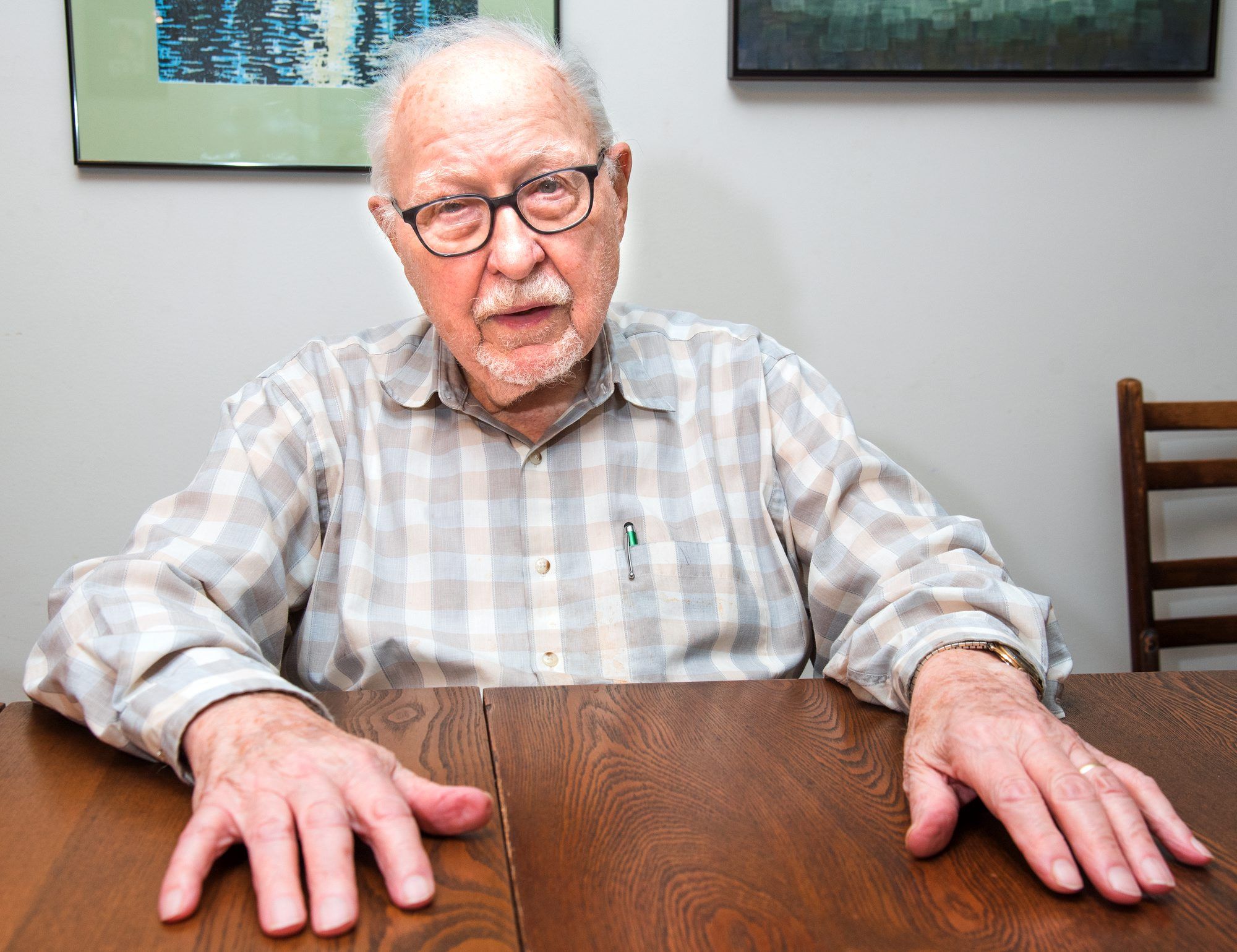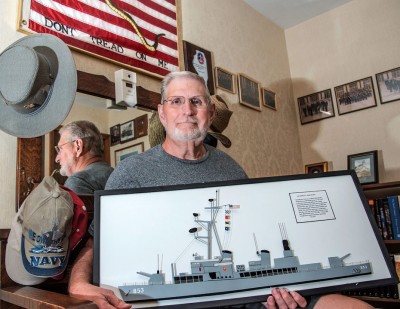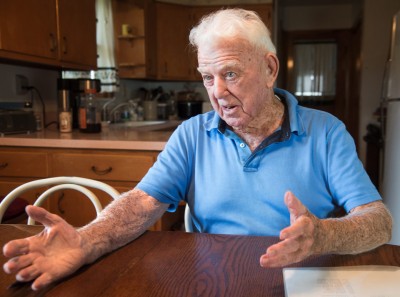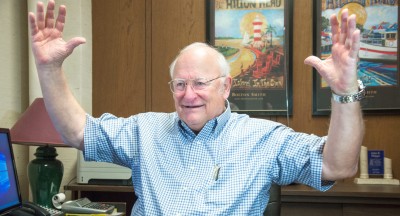Gerald Brighton
By Paul Wood

Photo By Robin Scholz/The News-Gazette
URBANA — Maj. Gerald Brighton served nearly all of World War II in the South Pacific, Australia and New Guinea.
A retired University of Illinois professor and former Urbana City Council member, Brighton, 95, spent five years in the service but never fired a shot.
Many of the people featured in “Those Who Served” have a story of facing enemy fire, but Brighton was one of the hundreds of thousands of men and women in uniform who kept the war effort rolling behind the lines.
Starting as a second lieutenant in the quartermaster corps, Brighton ordered parts for planes and worked long hours to make sure materiel was getting to the fighting lines.
A Weldon native, he earned a bachelor’s degree in accountancy in 1941 from the University of Illinois with honors that included the Bronze Tablet Award. (He earned a master’s degree in 1947 and his Ph.D. in accounting in 1953.)
Because he’d spent four years in ROTC, he was called to active duty before the war even began for America. (Europe had already endured two years of brutal warfare).
Brighton kept an honest, often-funny diary throughout the war and gave The News-Gazette a copy, complete with all the girls he went on dates with from 1941 to 1946.
Since shortly after the war, he has been happily married to Lois; they have five children. Two of them are well-known here — Carle physician Dr. Anne Robin and WILL veteran Jack Brighton.
Brighton’s diary, “My Stretch In The Service,” covers his time in the U.S., Australia, New Guinea and Biak, in Dutch New Guinea, from July 14, 1941, to March 25, 1946. His mother gave him the book he wrote in.
“My original training was in field artillery, with horses and trucks,” he says. “But for reasons that are a bit hazy at this distance in time, I decided to ask for the change to the Air Corps, and the change was granted.”
Brighton had his physical exam at Chanute Field in Rantoul. He saw the lighter side of the military right away.
“One of the sergeants I knew from ROTC,” he writes, “was considerably overweight.”
“When his weight was announced, there was some doubt that he would pass the examination. However, he called attention to the fact that he was wearing heavy shoes. So the examiner subtracted 45 pounds for the shoes, and he passed.”
Brighton had a similar experience. He is red-green color blind, and the examiner noted that, but on the final form, his vision was listed as normal.
“That is an example of Army efficiency,” he explained. “It is easier to erase and falsify than to process a claim for a waiver.”
His diary entry on Dec. 7, Pearl Harbor Day, is succinct:
“We stopped tonight in Goodlettsville, Tenn. There I was getting our tank truck filled with gas when I heard about the surprise attack on U.S. We all felt that it was something that had been coming and we were not surprised that it was here but only at the treachery.”
In early 1942, Brighton wrote about his progress across the Pacific and various drills — and kept a careful list of the books he was reading. But he also noted the escort ships that accompanied him on the dangerous crossing.
It was mid-February before he got to Brisbane, where he was one of the officers supervising a huge complex of warehouses.
That work would keep him busy through the war and for more than six months after it ended.
With his diary, Brighton kept a song called “Air Corps Supply.”
It ends:
There’s no use sitting ’round and crying
It’s up to us to Keep ‘Em Flying.
To you up front: we hope some day
You’ll understand what part we play,
And in the end we think you’ll see
We, too, have helped toward victory.
Do you know a veteran who could share a story about military service? Contact staff writer Paul Wood at pwood@news-gazette.com.
Read more stories from local veterans:
 Mike Barker
SAVOY — From blowing up enemy barges in Vietnam to commanding sailors who fought Saddam Hussein’s forces, Capt. Mike Bar …
Mike Barker
SAVOY — From blowing up enemy barges in Vietnam to commanding sailors who fought Saddam Hussein’s forces, Capt. Mike Bar …
 Les Gadbury
MONTICELLO — It has been 72 years since Marine Cpl. Les Gadbury fought his way across Iwo Jima, and he still remembers t …
Les Gadbury
MONTICELLO — It has been 72 years since Marine Cpl. Les Gadbury fought his way across Iwo Jima, and he still remembers t …
 John Phipps
CHAMPAIGN — During the Berlin Wall crisis in 1961, John Phipps was working as the Air Force base provost marshal, in cha …
John Phipps
CHAMPAIGN — During the Berlin Wall crisis in 1961, John Phipps was working as the Air Force base provost marshal, in cha …